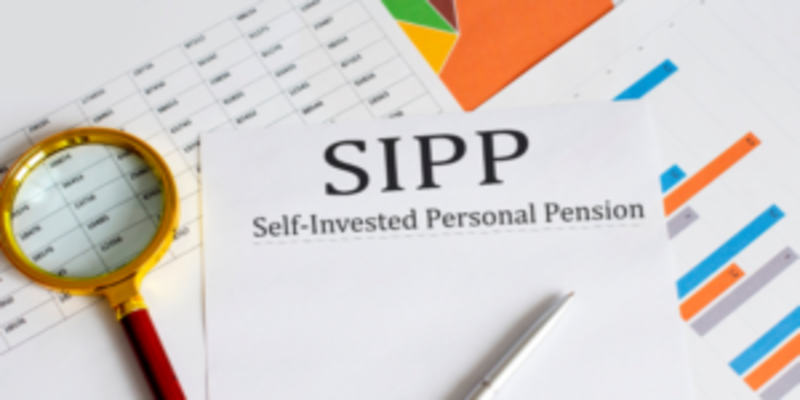For those who want more say over how their retirement funds are invested, a Self-Invested Personal Pension (SIPP) may be the best option. You can choose from a broader investment possibility than a standard pension plan, and the process is flexible and tax-efficient. Those who decide on a SIPP have complete control over the allocation of their pension contributions, which they can put toward anything from stocks and bonds to real estate and cash.
Those who wish to take charge of their retirement savings and are OK with the risks involved may benefit from establishing a SIPP. Those with a sizable pension fund who want more freedom and control over their investments would find this a good fit. Although there are many benefits to using a SIPP, some drawbacks should be considered before making any financial commitments.
What is a SIPP?
A self-invested personal pension, or SIPP, differs from a standard pension plan because it permits holders to invest in a wider variety of assets. It's a terrific way to get ahead for retirement without paying too much in taxes, and it gives you more options for your savings. Contributions to a SIPP can be put toward a wide range of investments, including stocks, bonds, real estate, and cash.
How does a SIPP work?
A SIPP is an individual pension plan established with a service provider's aid. The service provider is accountable for plan management and investment opportunities. With this plan, the participant decides how much money to put away and how that money is invested. In most cases, donations to a SIPP are exempt from taxation up to a predetermined threshold. Investment earnings from the plan are likewise not subject to tax. When the time comes for the worker to retire, they can cash in their pension in the form of an annuity or a drawdown of their assets.
Options for investments in a SIPP
A significant benefit of a SIPP over a typical pension plan is the greater freedom of investment choice. Individuals can use their SIPP to put money into stocks, bonds, real estate, and cash. Individuals can tailor their SIPP investment options to suit their needs and risk tolerance by working with their chosen provider. Some of the investment options available in a SIPP include:
Shares & Stocks
Anyone can open a SIPP and invest in stocks, bonds, mutual funds, and other investment vehicles. This investment strategy has the potential for more significant rewards but carries more danger.
Bonds
Investors can purchase government bonds, corporate bonds, and other fixed-income securities through a SIPP. Bonds offer a safer alternative to investing in stocks.
Property
One can use a SIPP to purchase a business or a residential property. A higher degree of risk and illiquidity is associated with property investments, but they also offer a chance of more significant returns.
Cash
With a SIPP, savers can keep liquid assets like cash for their retirement plan. Cash is an investment option with low risk but low rewards.
Advantages of a SIPP

Greater Investment Control
A SIPP gives people more freedom in managing their retirement funds. That they have a say in how their contributions are invested gives them more power and agency over their retirement provision.
More comprehensive Range of Investment Options
There is more flexibility in a SIPP than there is in a standard pension plan. You can put your money into stocks, bonds, real estate, or cash.
Tax-Efficient Savings
A SIPP is a way to go if you want to save money on taxes without sacrificing convenience. Investment returns earned by the plan are not subject to taxation, nor are contributions to the project.
Portability
A SIPP can be moved to a new service provider if the subscriber chooses. This allows for more discretion and management of retirement funds.
Inheritance Tax Planning
You can use a SIPP to save on inheritance taxes. Pension funds stored in a SIPP can be transferred to heirs tax-free because they are not considered part of the estate.
Disadvantages of a SIPP
Higher Costs
The increased flexibility and control over retirement savings that come with a SIPP can make it more expensive than a standard pension plan. Investors in the program may also be subject to costs associated with the administration of their holdings.
Complicated Investing Choices

Those with little experience in the financial markets may feel overwhelmed by the sheer number of investing alternatives available in a SIPP. Poor investing decisions could significantly impact individuals' retirement funds if they lack competent counsel.
Greater Risk
A SIPP has more potential for profit, but more is also at stake. Equities, real estate, and other high-risk investments are susceptible to market changes that can result in substantial losses.
Illiquidity
It's essential to consider the liquidity needs of your SIPP investments before making big bets on things like real estate or certain bond kinds. Because of this, selling them fast in times of financial need may be problematic.
No Guaranteed Income
A pension plan funded by a SIPP does not assure a fixed income in old age. A person's retirement income is contingent on the plan's investment results, which can vary widely from year to year.
Regulatory Risks
Regulatory concerns like new tax legislation and investment rules might negatively impact the value of a SIPP.
Conclusion
Regarding retirement planning, a SIPP offers both adaptability and tax advantages. Compared to typical pension systems, it gives investors more freedom to choose how they allocate their retirement funds. However, there are drawbacks to consider, including increased fees, sophisticated investment options, more risk, illiquidity, no guaranteed income, and regulatory problems. Before making any investment selections, an individual should thoroughly research the benefits and drawbacks of a SIPP and consult a financial advisor.




